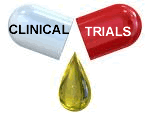By
Liz Highleyman
 Given
the side effects and limited efficacy of interferon-based therapy
for chronic hepatitis C, researchers are exploring a variety
of direct-acting anti-HCV agents. To date, most of these drugs
have been tested in combination with pegylated
interferon plus ribavirin, but some studies are now evaluating
all-oral regimens. To discourage emergence of resistance, investigators
are looking at combinations of agents that target different
steps of the viral lifecycle.
Given
the side effects and limited efficacy of interferon-based therapy
for chronic hepatitis C, researchers are exploring a variety
of direct-acting anti-HCV agents. To date, most of these drugs
have been tested in combination with pegylated
interferon plus ribavirin, but some studies are now evaluating
all-oral regimens. To discourage emergence of resistance, investigators
are looking at combinations of agents that target different
steps of the viral lifecycle.
In
a laboratory study, Veronique Zennou and colleagues from Pharmasset
tested a combination of PSI-7977 plus PSI-938, and well as these
candidates plus the HCV protease inhibitor telaprevir
and a benzothiadiazine non-nucleoside polymerase inhibitor (NNRTI).
They used replicon models of wild-type HCV and virus with various
known resistance mutations.
While
PSI-7977 and PSI-938 are both nucleotide analog prodrugs --
a pyrimidine and a purine analog, respectively -- they work
by different mechanisms to interfere with the HCV NS5B polymerase
enzyme, which is responsible for copying viral genetic material.
Results
 |
PSI-7977
plus PSI-938 demonstrated additive to synergistic (greater
than the sum of the 2 drugs) activity. |
 |
This
combination effectively cleared replicon models of both
wild-type HCV and a strain with the NS5B polymerase S282T
mutation. |
 |
PSI-7977
plus PSI-938 was more effective than telaprevir plus the
NNRTI at clearing the wild-type replicon. |
 |
Either
PSI-7977 or PSI-938 plus the NNRTI cleared wild-type and
mutant replicons. |
 |
No
emergence of new resistance mutations was detected. |
Based
on these findings the researchers concluded, "These in
vitro results indicate that combinations of two nucleosides/tides
targeting NS5b as well as direct-acting antivirals targeting
different HCV proteins effectively suppress resistant replicons."
PSI-7977 in Phase
2a
Following the EASL meeting, on May 4, Pharmasset announced results
from a Phase 2a study of PSI-7977 administered once-daily in
combination with pegylated interferon alfa-2a (Pegasys) and
ribavirin for 28 days in 63 previously untreated patients with
genotype 1 chronic hepatitis C; standard therapy was then continued
for an additional 44 weeks.
PSI-7977 demonstrated "potent short term antiviral activity
and was generally safe and well tolerated," according to
a press release issued by the company. All patients receiving
PSI-7977 demonstrated continuous declines in HCV viral load
with no viral breakthrough during 28 days of treatment; at all
doses HCV RNA decreased by just over 5 log.
In an intent-to-treat analysis, 88% of patients in the PSI-7977
100 mg arm, 94% in the 200 mg arm, and 93% in the 400 mg arm
achieved undetectable viral load (<15 IU/mL), significantly
higher than the 21% response rate in the placebo plus standard
therapy arm. Safety and tolerability were comparable to placebo
across all PSI-7977 dose arms. No serious adverse events and
no adverse events leading to treatment discontinuation were
oberved. A full report of study findings will be presented at
a scientific meeting later in 2010.
PSI-938
in Phase 1
In
early April, Pharmasset announced the initiation of dosing in
a Phase 1 single ascending dose study of PSI-938 in healthy
HCV negative volunteers.
"PSI-938 is our first purine nucleotide analog to move
into clinical development," said Pharmasset Chief Medical
Officer Michelle Berrey in a company press release. "As
PSI-938's resistance profile is different from other nucleoside/tides
in development for HCV and it has a different metabolic pathway
from pyrimidine analogs, such as RG7128
and PSI-7977, we believe PSI-938 could be potentially combined
with other nucleosides in development to deliver a pan-genotype
regimen. We look forward to reporting the first antiviral data
with PSI-938 in the third quarter of 2010."
Pharmasset Inc., Princeton, NJ.
5/11/10
Reference
V Zennou, AM Lam, M Keilman, and others. Combination of two
complementary nucleotide analogues PSI-7977 and PSI-938 effectively
clears wild type and NS5b: S282T HCV replicons -- comparison
with combinations of other antiviral compounds. 45th Annual
Meeting of the European Association for the Study of the Liver
(EASL 2010). Vienna, Austria. April 14-18, 2010. (Abstract
1034).
Other Sources
Pharmasset,
Inc. Pharmasset Announces Results of a 28-day Phase 2a Study
with PSI-7977 for the Treatment of Chronic Hepatitis C Infection.
Press release. May 4, 2010.
Pharmasset,
Inc. Pharmasset Initiates First Time in Human Study of PSI-938
for the Treatment of Hepatitis C: unique new HCV drug, nucleotide.
Press release. April 13, 2010.